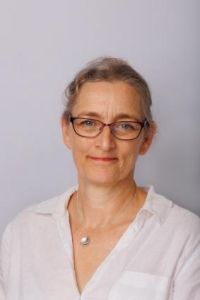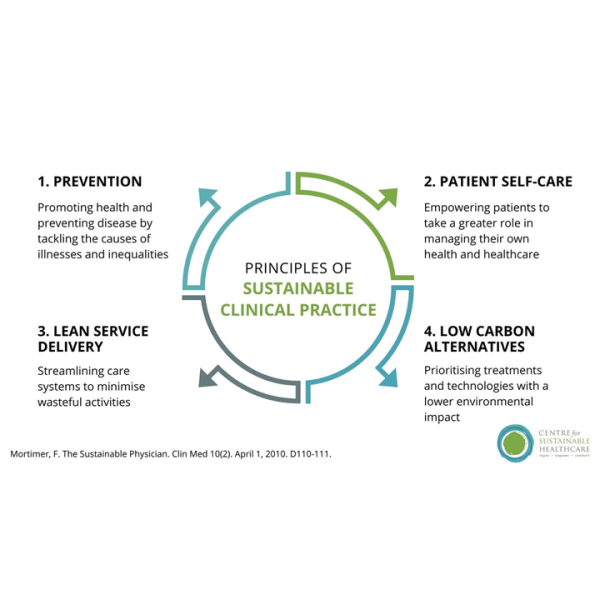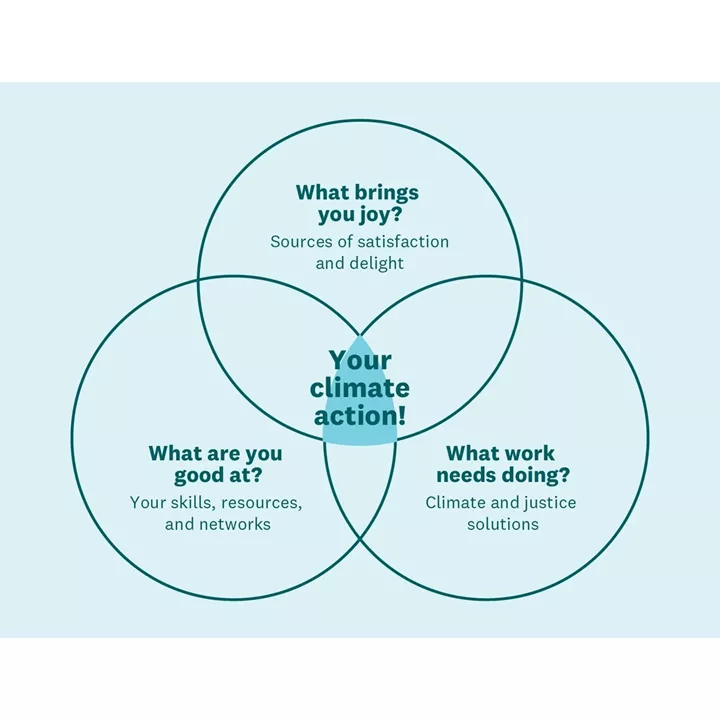The climate crisis is a health crisis – so what can we do?

Jacqueline Gordon – Occupational Therapist at Homerton University Hospital NHS Foundation Trust, BAOT Council Member for England and Clinical Sustainability Manager for Sussex Community NHS Foundation Trust – shares her knowledge on how you can make an impact on climate change and work more sustainably.
As occupational therapists, we can not only make changes in how we live and work but we can also support those we work with to make sustainable choices.
A huge thank you to Jackie for providing this insight.
The climate crisis is a health crisis; we rely on the environment for our health and wellbeing. As the world climate changes, we see the impact on individual health and health systems.
But ... there's information, education and support available.
This Greener AHP Week why not make a change?
So, what can we do?
1. What is 'sustainable clinical practice'?

It’s not recycling!
Sustainable clinical practice covers all areas of occupational therapy, from keeping people healthy and enabling them to participate, to housing and equipment.
How can we implement this in our work?
- Support meaningful activities to prevent ill health.
- Use social prescribing to enable people to manage their health – GPs often have a link worker.
- Use less equipment, or items that will last and be mendable – watch the OT Susnet meeting, Reuse Repair Repeat, to find inspiration.
- Talk to your colleagues more – working effectively as a team supports better care and reduces duplication of resources.
- Use remote technology to benefit people, or offer it as an option.
Interested in learning more about the virtual delivery of services?
Join the Allied Health Professions Sustainability Network for an online event on Wednesday 9 April 2025.
You'll hear two presentations from practitioners about their learning from the virtual delivery of services. It's open to any AHP practitioners, students, educators, managers or researchers wanting to explore sustainable practice.
2. Find your allies
It can feel like you are the lone voice, but 95% of occupational therapists feel sustainability is important and most of the general population supports a Green Agenda in healthcare.
To get started you can:
- talk and listen to people – there will be things you can agree on, for example, most people dislike waste.
- join a green group at your workplace or find out what is happening from your sustainability team
- find out if anyone on your team would like to join one of NHS England's Greener AHP Week events with you
- ask questions, build ideas and share resources with the Allied Health Professions Sustainability Network – all are welcome to their monthly meetings.
3. Quick wins!
Start small, make one or two changes that don’t cost time or money. The new Care Quality Commission (CQC) requirements mean that everyone should be educated and will be judged on workforce awareness, so it’s a good time to:
• add sustainability as a standing agenda item to your team meeting or away day – this will be a great way to generate discussion, learn or share good practice
• add a sustainability objective to your Personal Development Plan/Review or as an objective for student placements
• share good news stories about better care – quality improvement projects often save pollution and time, are cleaner and have wider benefits for staff and patients.
4. Students and educators – use the Planetary Health Report Card
The Planetary Health Report Card (PHRC) is a worldwide student-led initiative to evaluate training programmes and support change.
Students and educators should work together to implement student recommendations.
5. Find your climate superpower!

Focus on what you specifically can do based on these things:
- What work needs doing?
- What are you good at?
- What brings you joy?
Dr. Ayana Elizabeth Johnson's Ted Talk on the Climate Action Venn Diagram is a superb place to start!
Want to learn more?
If you want to explore more, you can also check out:
- RCOT and sustainability
- Greener NHS pages
- Including their 'whats already happening' page
- Cascades' Sustainable occupational therapy playbook
- Environmental Sustainability elearning session from NHS Engalnd
- Videos from Greener AHP Week 2024 where new videos are being added regularly including presentations on a wide variety of topics including mending equipment, student initiatives, sustainable period health, litter picking as meaningful activity, green walking for mental health and many more.
References in this article
- WHO, 2015
- RCOT questionnaire 2023
- Darzi Report on the state of the NHS: Sept 2024
- CQC guidance
If you'd like to speak with Jackie about any of the above, or have questions about how you can get involved in sustainability practice, you can email her at [email protected].